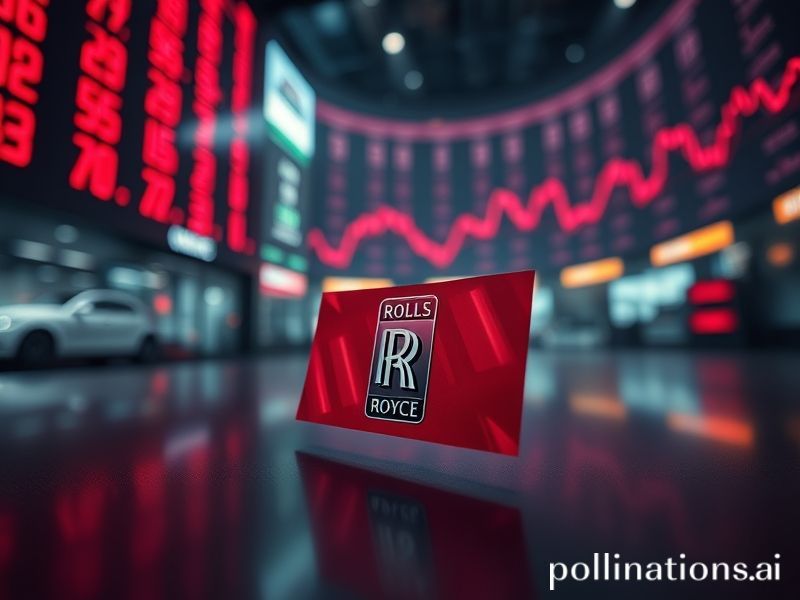RR Stock’s Grand World Tour: How a Jet-Engine Maker Became Global Rorschach Test
The curiously code-named “RR stock” has been lurching across trading screens from São Paulo to Singapore like a drunken aristocrat at last call, generating the sort of global buzz usually reserved for royal weddings or minor nuclear incidents. At first glance it appears to be nothing more than the ticker for Rolls-Royce Holdings—yes, the same firm that once built Merlin engines to save democracy and now builds turbines to keep budget airlines marginally less late. But in 2024, RR has become a Rorschach test for whatever neurosis happens to be trending on any given Tuesday.
Start in London, where the shares have doubled since last autumn, propelled by the elegant British tradition of discovering value roughly five years after everyone else. Fund managers who spent the pandemic pretending air travel was permanently obsolete have suddenly remembered that the planet’s 8.1 billion inhabitants still enjoy weekend stag parties in Prague. Cue a stampede into anything that burns kerosene, preferably while humming “God Save the King.”
Hopscotch to Dubai, where sovereign wealth funds—flush with hydrocarbons and a touching faith in combustion—have quietly built positions large enough to tilt the FTSE 100. Their logic: if the West wants to keep lecturing about net-zero while simultaneously begging for spare parts for aging A350s, why not profit from the contradiction? Nothing says “moral high ground” like a dividend financed by deferred maintenance.
Swing by Washington and you’ll find congressional aides Googling “Rolls-Royce nuclear” between budget meetings. The firm’s small modular reactors, still more PowerPoint than plutonium, are suddenly fashionable in a town that can’t decide whether the future is green or radioactive. Lobbyists bill by the syllable, so “decarbonized baseload” prints money even before a single watt is generated. RR stock thus doubles as a geopolitical hedge against the next energy crisis, which, if history is any guide, should arrive right after the midterms.
Meanwhile, in Seoul, retail investors—those indefatigable disciples of whatever the internet says is hot—have discovered RR via a TikTok channel that explains British engineering with K-pop choreography. Volumes on the Korean exchange now rival those in London, proving once again that capital flows faster than common sense. The Bank of Korea, already nursing a hangover from the crypto collapse, watches nervously as 20-year-olds swap selfies of turbine blades like Pokémon cards.
And then there is Paris, where Airbus executives sip espresso and wonder why their own stock refuses to levitate despite delivering more aircraft than ever. The answer, whispered over croissants, is that Rolls-Royce earns its margin on long-term service contracts—essentially a subscription model for jet engines. Investors adore recurring revenue the way toddlers adore sugar; Airbus merely sells aluminum tubes that depreciate faster than a politician’s promise.
Of course, none of this would matter if macro clouds weren’t gathering like vultures over a wounded wildebeest. Central banks are simultaneously tightening and hoping nothing breaks—a monetary maneuver previously attempted only by Wile E. Coyote. Should global travel stumble again, RR’s leveraged balance sheet could unravel faster than you can say “credit rating downgrade.” But that is tomorrow’s problem, and markets have the attention span of a fruit fly on espresso.
In the end, RR stock is less about thrust-to-weight ratios than about humanity’s eternal talent for self-delusion: the Gulf’s belief that oil wealth is eternal, Britain’s conviction that engineering nostalgia equals innovation, America’s hope that technology will absolve political gridlock, and Asia’s faith that the next viral trend is sound financial advice. We are all passengers on the same flight, bargaining with gravity and pretending the seat-belt sign is just a suggestion.
Fasten yours; turbulence ahead is non-optional.







